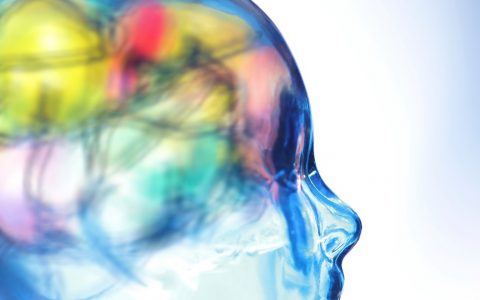Baron23
Well-Known Member
THC Tolerance: Here’s Why T-Breaks Work So Quickly
Cannabis doesn’t kill brain cells like methamphetamine. Unlike alcohol, it doesn’t cause the connections between these cells to wither away. Instead—cue scary music—repeated cannabis consumption leads to a diminished effect better known as “tolerance.”
If you stop using cannabis, the brain can recover. And it does so impressively quickly, generally within weeks.
The reason for a consumer’s tolerance to THC can be explained by cannabinoid type I (CB1) receptors in the brain, which decrease with continued cannabis use. That is, you need to consume more of the high-inducing THC to get your buzz. Over time and with continued use, it may seem impossible to get high at all.
But here’s the thing: if you stop, the brain can recover. And it does so impressively quickly, generally within weeks.
What Is “Tolerance”?
THC activates CB1 receptors to make you feel stoned. The high is essentially an abnormal increase in the activity of CB1 receptors. Once THC is gone, this activity usually returns to normal.
But if you repeatedly expose the brain to THC over a couple days or weeks, the brain takes action to minimize the increase in CB1 receptor activity; the brain fights back so that normal CB1 activation patterns are preserved. To do so, CB1 receptors are reduced, their effects weakened, or genetic expression altered. These mechanisms work to dampen the impact of THC so that in order to achieve the initial high, one must consume more. This is tolerance.

RELATED STORY
Can a Tolerance Break Rejuvenate the Effects of Cannabis?
How Tolerance to THC Develops
THC causes tolerance through repeated activation of CB1 receptors. Repeated activation of CB1 receptors initiates events inside the brain cell that at first leads to desensitization, which is the weakening of the response to THC, followed by internalization, which is the removal of CB1 receptors from the cell’s surface. You’ll be able to detect when these processes occur because you’ll need to consume more THC to get high.
If you continue to consume THC, it will have less of an effect on brain functioning because there are fewer receptors for it to act on.
The difference between the two is that desensitized receptors are still available for THC to bind, but when it does bind, its impact is lower than it once was. Internalized receptors are no longer available for THC to bind since they’re brought into the brain cell from the surface where they stay or get broken down into smaller parts.
The activation of CB1 receptors by THC initiates these processes. As CB1 receptors get frequently activated, they become less associated with the components that carry out the receptors effects. CB1 receptors are like a baseball pitcher who throws a lot of pitches. Eventually, the pitcher’s muscles can’t carry out the task of throwing the ball as hard as it once could. This weakening strength is observed by the coach who then pulls the pitcher out of the game.

Similarly, there are proteins in the cell that act like the coach to detect weak receptors and pull them from the game. Desensitized CB1 receptors are detected by components within the cell that tag the receptor with a phosphate group. This is like the pitcher telling the coach to take them out of the game. This phosphate group signals to additional components within the cell to remove the receptor from the cell’s surface. At this point, both the pitcher and the CB1 receptor are no longer active players.
As a result, if you continue to consume THC, it will have less of an effect on brain functioning because there are fewer receptors for it to act on.
The Timeline of Tolerance
If you’re a regular cannabis user, how quickly you become tolerant to THC (which reflects CB1 receptor internalization) depends on the dose and frequency you consume, your use history, and your DNA. Obviously, these factors vary greatly across individuals, so our best understanding of the time course for tolerance development comes from studies in mice.
Mice who were given twice daily injections of THC at 10 mg/kg developed tolerance to THC’s pain-relieving and sedative effects after 36 hours (i.e., 3 THC injections). Tolerance to THC’s sedative effects were stronger than to its pain-relieving effects, suggesting that different brain regions or brain cells are more susceptible to tolerance than others.

After a week of THC exposure, the THC injections stopped, and the rate of recovery was measured. Behavior normalized in less than two weeks, and tolerance to THC’s sedative effect recovered quicker than its effect on pain. So the brain mechanisms that promote quicker tolerance are also most resilient and recover quicker from a period of abstinence.
Tolerance to THC Soon Disappears With Abstinence
Compared to other recreational drugs, cannabis is unique in the speed at which the brain “recovers” following a period of abstinence. Recovery is notably difficult to measure, but we can look at changes in behavior, brain function, and brain chemical receptor levels as a proxy.
A study of daily cannabis users reported that users had reduced CB1 receptors compared to non-users, which increased to around-normal after just two weeks of abstinence. Importantly, this study didn’t assess whether CB1 receptors remained desensitized. However, additional studies demonstrated that withdrawal is more intense when there are fewer available CB1 receptors for THC to bind, suggesting that tolerance is indeed the internalization of CB1 receptors.
Since internalization of CB1 receptors is the predominant consequence of excessive THC consumption, it helps explain why there’s faster brain recovery with cannabis abstinence than many other drugs of abuse. At worst, CB1 receptors become internalized and broken down, in which case they must be reproduced and sent back up to the cell’s surface to recover normal brain function (it should be noted that there can be additional repercussions with substantial use on other brain chemical systems).

When you compare it to alcohol, cannabis doesn’t seem so bad. Excessive alcohol consumption can be toxic to the brain, causing injury or death to the brain cells themselves. Abstaining from alcohol can lead to some recovery, but it takes longer than cannabis and is often less complete.
With methamphetamine, there’s little recovery of brain functioning in the critical brain regions involved in reward processing even after a year of abstinence. To add to the reduced brain activity, meth is toxic and repeated use can trick the brain into thinking it’s injured, leading to persistent activation of repair cells that impair brain function. Meth can even kill brain cells.
You’re better off sticking with cannabis
Cannabis doesn’t kill brain cells like methamphetamine. Unlike alcohol, it doesn’t cause the connections between these cells to wither away. Instead—cue scary music—repeated cannabis consumption leads to a diminished effect better known as “tolerance.”
If you stop using cannabis, the brain can recover. And it does so impressively quickly, generally within weeks.
The reason for a consumer’s tolerance to THC can be explained by cannabinoid type I (CB1) receptors in the brain, which decrease with continued cannabis use. That is, you need to consume more of the high-inducing THC to get your buzz. Over time and with continued use, it may seem impossible to get high at all.
But here’s the thing: if you stop, the brain can recover. And it does so impressively quickly, generally within weeks.
What Is “Tolerance”?
THC activates CB1 receptors to make you feel stoned. The high is essentially an abnormal increase in the activity of CB1 receptors. Once THC is gone, this activity usually returns to normal.
But if you repeatedly expose the brain to THC over a couple days or weeks, the brain takes action to minimize the increase in CB1 receptor activity; the brain fights back so that normal CB1 activation patterns are preserved. To do so, CB1 receptors are reduced, their effects weakened, or genetic expression altered. These mechanisms work to dampen the impact of THC so that in order to achieve the initial high, one must consume more. This is tolerance.

RELATED STORY
Can a Tolerance Break Rejuvenate the Effects of Cannabis?
How Tolerance to THC Develops
THC causes tolerance through repeated activation of CB1 receptors. Repeated activation of CB1 receptors initiates events inside the brain cell that at first leads to desensitization, which is the weakening of the response to THC, followed by internalization, which is the removal of CB1 receptors from the cell’s surface. You’ll be able to detect when these processes occur because you’ll need to consume more THC to get high.
If you continue to consume THC, it will have less of an effect on brain functioning because there are fewer receptors for it to act on.
The difference between the two is that desensitized receptors are still available for THC to bind, but when it does bind, its impact is lower than it once was. Internalized receptors are no longer available for THC to bind since they’re brought into the brain cell from the surface where they stay or get broken down into smaller parts.
The activation of CB1 receptors by THC initiates these processes. As CB1 receptors get frequently activated, they become less associated with the components that carry out the receptors effects. CB1 receptors are like a baseball pitcher who throws a lot of pitches. Eventually, the pitcher’s muscles can’t carry out the task of throwing the ball as hard as it once could. This weakening strength is observed by the coach who then pulls the pitcher out of the game.

Similarly, there are proteins in the cell that act like the coach to detect weak receptors and pull them from the game. Desensitized CB1 receptors are detected by components within the cell that tag the receptor with a phosphate group. This is like the pitcher telling the coach to take them out of the game. This phosphate group signals to additional components within the cell to remove the receptor from the cell’s surface. At this point, both the pitcher and the CB1 receptor are no longer active players.
As a result, if you continue to consume THC, it will have less of an effect on brain functioning because there are fewer receptors for it to act on.
The Timeline of Tolerance
If you’re a regular cannabis user, how quickly you become tolerant to THC (which reflects CB1 receptor internalization) depends on the dose and frequency you consume, your use history, and your DNA. Obviously, these factors vary greatly across individuals, so our best understanding of the time course for tolerance development comes from studies in mice.
Mice who were given twice daily injections of THC at 10 mg/kg developed tolerance to THC’s pain-relieving and sedative effects after 36 hours (i.e., 3 THC injections). Tolerance to THC’s sedative effects were stronger than to its pain-relieving effects, suggesting that different brain regions or brain cells are more susceptible to tolerance than others.

After a week of THC exposure, the THC injections stopped, and the rate of recovery was measured. Behavior normalized in less than two weeks, and tolerance to THC’s sedative effect recovered quicker than its effect on pain. So the brain mechanisms that promote quicker tolerance are also most resilient and recover quicker from a period of abstinence.
Tolerance to THC Soon Disappears With Abstinence
Compared to other recreational drugs, cannabis is unique in the speed at which the brain “recovers” following a period of abstinence. Recovery is notably difficult to measure, but we can look at changes in behavior, brain function, and brain chemical receptor levels as a proxy.
A study of daily cannabis users reported that users had reduced CB1 receptors compared to non-users, which increased to around-normal after just two weeks of abstinence. Importantly, this study didn’t assess whether CB1 receptors remained desensitized. However, additional studies demonstrated that withdrawal is more intense when there are fewer available CB1 receptors for THC to bind, suggesting that tolerance is indeed the internalization of CB1 receptors.
Since internalization of CB1 receptors is the predominant consequence of excessive THC consumption, it helps explain why there’s faster brain recovery with cannabis abstinence than many other drugs of abuse. At worst, CB1 receptors become internalized and broken down, in which case they must be reproduced and sent back up to the cell’s surface to recover normal brain function (it should be noted that there can be additional repercussions with substantial use on other brain chemical systems).

When you compare it to alcohol, cannabis doesn’t seem so bad. Excessive alcohol consumption can be toxic to the brain, causing injury or death to the brain cells themselves. Abstaining from alcohol can lead to some recovery, but it takes longer than cannabis and is often less complete.
With methamphetamine, there’s little recovery of brain functioning in the critical brain regions involved in reward processing even after a year of abstinence. To add to the reduced brain activity, meth is toxic and repeated use can trick the brain into thinking it’s injured, leading to persistent activation of repair cells that impair brain function. Meth can even kill brain cells.
You’re better off sticking with cannabis